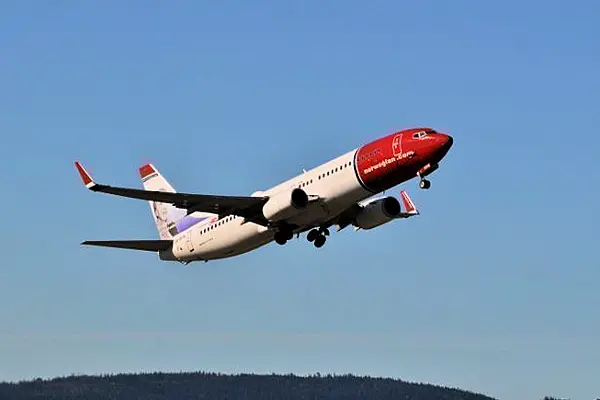Norwegian Air's Bjoern Kjos has stepped down as chief executive of the airline he co-founded and turned into Europe's third-biggest budget carrier by passenger numbers over more than 25 years.
Chief financial officer Geir Karlsen will act as interim CEO while the company hires a permanent new CEO. Kjos, who is 72 and is a major shareholder in the business, will have a new role as an adviser to the chairman.
The airline has shaken up the long-haul market with cut-price transatlantic fares, but its rapid expansion has left it with hefty losses and high debts and it had to raise three billion crowns ($350 million) from shareholders earlier this year.
Some analysts said his departure could make it easier to sell the airline after talks about a deal with British Airways owner IAG fell through in January.
"I am way overdue," Kjos, laughing, told a news conference, announcing his plans to quit the top job. A former fighter pilot, Kjos helped to expand what was a tinyNorwegian airline housed in pre-fabricated barracks on the edge of Oslo airport.
"I think I can do a better job for Norwegian taking up a role building up an alliance as we see it," Kjos told Reuters on the sidelines of a news conference. He added that he hoped Norwegian could find other partners to build similar alliances such as the existing agreement with easyJet.
Norwegian Air teamed up with easyJet in 2017 to make its long-distance flights available to easyJet customers.
European airlines have been struggling with overcapacity and there has long been talk of further consolidation in the industry, with Norwegian Air seen as a prime target.
Kjos owns 17.2% of the company via the HBK Invest holding he controls with former Norwegian Air chairman Bjoern Kise.
"Norwegian Air is the life's work of Bjoern Kjos so it is understandable if he had issues with a takeover. A new CEO will probably have a more flexible look at this," said Sydbank analyst Jacob Pedersen, who said he was "surprised" Kjos was stepping down.
"There is a lot of turbulence surrounding Norwegian with a lot of internal measures starting up but not finished," he said, also citing the grounding of the Boeing MAX jets. "And in the middle of this, the guy in the cockpit is taking a more peripheral role."
Kjos told Reuters he was "not sad at all," and that the move, which had been planned for years, would free up time for him to go sailing more.
737 Max Planes
The airline also said it expected its 18 grounded Boeing 737 MAX aircraft to return to service in October, compared with its previous view that they would return to service in August.
The jets have been grounded worldwide since March following two fatal crashes, and Norwegian Air has said that the disruption could scupper its plans to return to profitability this year. On Thursday July 11, the airline said that the jets would cost the company 700 million crowns in 2019.
The company has cut its capital expenditure target as the number of Boeing 737 MAX deliveries has been cut to six from earlier 16 aircraft in 2019, while 11 MAX planes are now expected to be delivered in 2020, up from the earlier eight.
As a consequence, capital expenditure has been cut by $500 million to $1.2 billion in 2019, while 2020 expenditure is up $100 million to $1.3 billion.
Interim CEO Karlsen said talks to form a joint venture with a third party about its aircraft fleet ownership were progressing and that it expected to have clarity on this "within weeks".
The company signed a letter of intent in February with an "Asian company", but few concrete details on a possible deal have come since then.
The company reported second-quarter earnings that beat expectations on Thursday July 11.
Its net profit came in at 82.8 million Norwegian crowns ($9.7 million), down from 300.3 million in the same period last year, but ahead of the average forecast of 76.2 million from five analysts compiled by Refinitiv.
News by Reuters, edited by Hospitality Ireland. Click subscribe to sign up for the Hospitality Ireland print edition.









